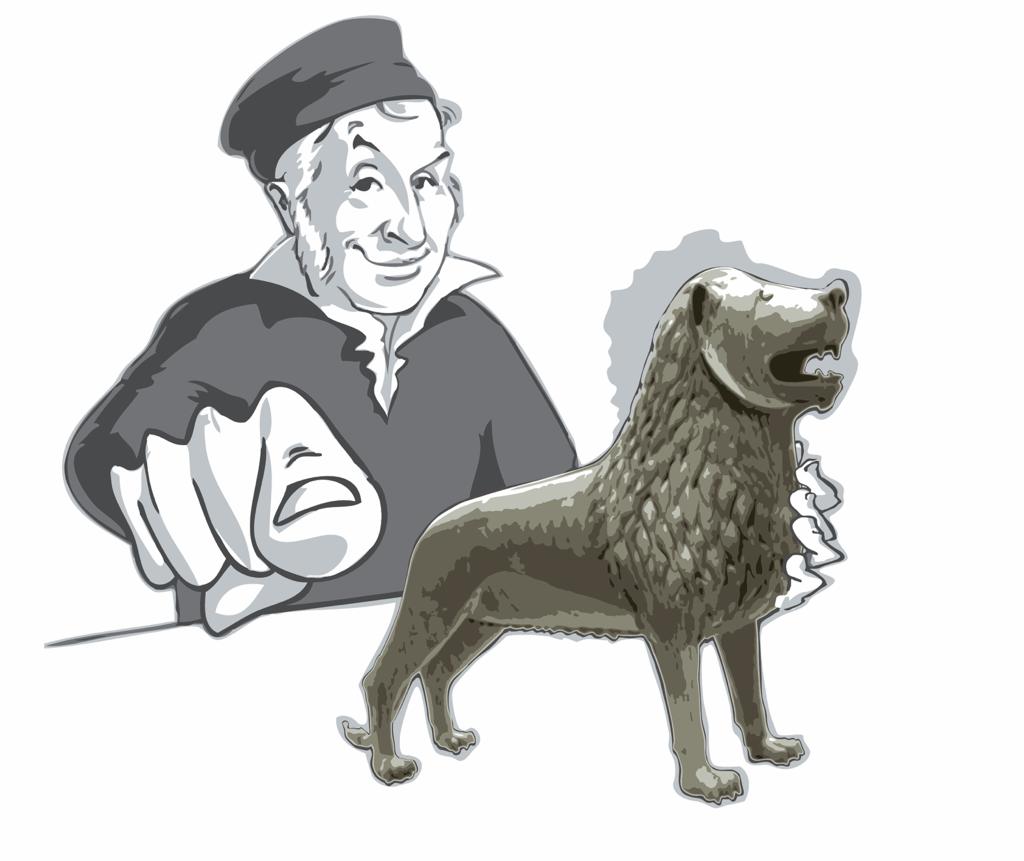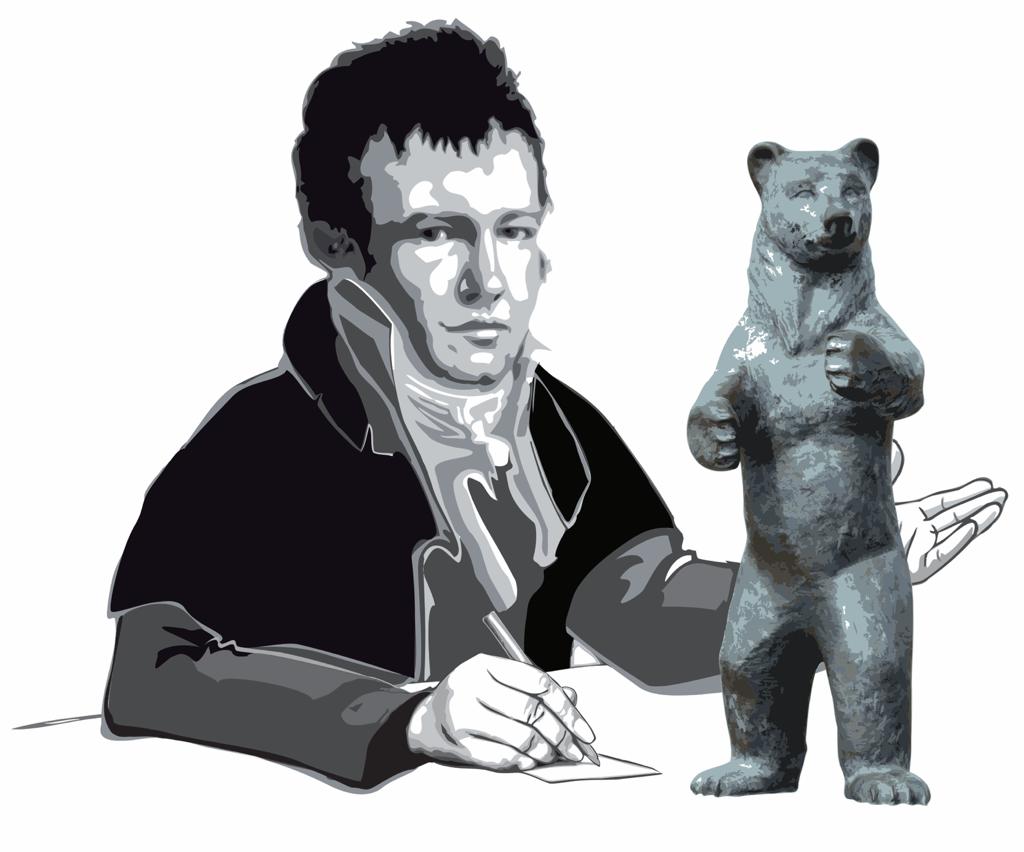Gauss-Telegraph: 17 international people in Braunschweig – Lena Heinecke
by Kong Hui Lin

- May you introduce yourself briefly? How old are you, where are you from and what are you currently studying?
I am from Germany, 24 years old and I am currently studying environmental engineering in the 3rd master semester.
- What led you to TU Braunschweig? Did you manage to settle into the life in Braunschweig quickly? What helped you to find your way in the beginning?
I was actually born in Braunschweig, but I moved to another city with my family when I was one year old. I decided to study at the TU Braunschweig because it is not that far from home. In addition, my course was not available at many universities at the time and I liked the modules at TU Braunschweig the most. It was not that difficult for me personally to settle in Braunschweig. I took part in a math preparatory course organised by the university and got to know a few fellow students. For this reason, I managed to survive without much challenges.
- How did you come across Gauss Haus?
I first got to know the Gauss Haus by participating in the Gauss Buddy Program. The support program for international students was very interesting and I had a lot of fun. This led me to apply for the student assistant job later on. I also spent some time in China as an exchange student and I am aware of the feeling of being new to a foreign country. I find the idea of circumventing myself with different cultures extremely exciting.
- How do you relate to the Gauss Haus? What exactly is your job there?
I have been working as a student assistant at the Gauss Haus since the end of 2017. I am responsible for various tasks, such as preparing and working during the themed nights on Tuesdays, organizational tasks, co-supervising the reading group, etc.
- What is or are your hobbies?
I really like inline skating and bike tours. I also like to pick up new languages.
- What is so special about the Gauss Haus? Do you have something that is particularly dear to your heart?
I like the harmonious and positive atmosphere in the Gauss Haus, especially during the Gauss evenings that take place every Tuesday or other Gauss Friends events. You get to hear different languages everywhere and to know other cultures, too. I just think that it’s wonderful how people from all over the world can exchange their ideas freely. You have to experience it by yourself to really understand what I mean. I like the First Steps program that happen at the beginning of the semester in particular. The program makes it easier for many new students to start brand new in Braunschweig and since the events take place every single day in which you usually get to see the faces of the same participants, it is the perfect timing to make friends.
- I heard that you have been active at Gauss Haus for a long time. What was the most difficult part of your immersion experience here? What other facets of your experience at Gauss Haus were challenging?
On the whole, I have not encountered big problems. At first, I was a bit shy, but as I mentioned before, the people at Gauss-Haus are very open and tolerant to each other. You can just come in and join and you hardly notice how quickly time flies.
- Are there any historical moments that you would like to share with us?
As I mentioned before, I was in charge of the Gauss reading group. We read about ten letters between Carl Friedrich Gauss and his wife, Johanna and had some conversations about the content (e.g. engagement) interculturally last year. A book which contains the letters as well as comments, thoughts and painted pictures by the participants of the reading group was created in the end. On April 30, 2019, it was published at a celebration of Gauss’ birthday in the State Museum. The awarding of the Federal Foreign Office Prize for excellent support for foreign students at the end of 2019 was also a wonderful moment because it appreciated the years of hard work by Younouss and many other people.
- Can you describe a situation in which you considered it necessary to be an ambassador for your country?
It is important to be aware that we must always be ambassadors for our own country whenever we are abroad. When I was in China, I was faced with some stereotypes, but luckily not those with bad prejudices. Some people thought that all Germans drink a lot of beer and eat pork every day (which certainly applies to some), which is why they were confused when I neither drank alcohol nor ate meat. If I were to face with extreme prejudices, of course I would explain the real situation in Germany.
- Did your experience that Gauss Haus helped you to respect cultural differences? If so, can you give specific examples?
I have always respected cultural differences, but I definitely got to know some cultures better through Gauss Haus. For example, previously I did not know the culture of Uzbekistan or Reunion Island, but after a presentation during the Gauss evening or through contact with people from the countries, I now have a clearer idea of these countries.
- What are the benefits that your experiences give you regarding your studies or private life?
I, as a German at Gauss Haus, often receive questions about the German language. I was once asked by an international Gauss guest about what the difference between the word “ausschalten” and “abschalten” is. At that time, I couldn’t answer at all and that’s why I signed up for the study program “German as a foreign language”. The course lasted three semesters and I learned a lot of exciting things about the German language. In general, the Gauss-Haus helps people to deal more with their own culture and also to look at it from different perspectives
- What will you miss the most when you finish your study soon?
During your study, you can arrange your time yourself and do not have to work from e.g. 8 a.m. to 5 p.m. The flexibility which I can now enjoy will most probably be gone as well. Hopefully I can stay active with the Gauss Friends, so I don’t have to miss that too.


